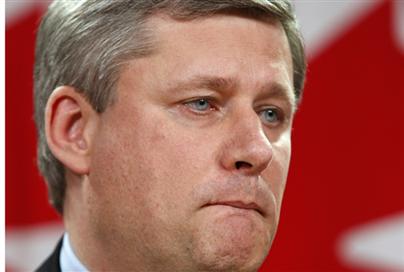Canadians long calling for Electoral Reform may finally have some support after millions of dollars have been squandered on an election that produced another minority government, no change in Canada’s leadership and no indication of a more effective House of Commons.
Tuesday’s Federal Election proved that the winning party – Stephen Harper’s Conservatives – do not represent the will of the majority of voters. The Conservatives captured just 37% of the popular vote while the combination of Liberal, NDP and Green voters represented 51% of Canadian ballots, indicating Canada suffers from the Ralph Nader Effect: a fatal splitting of the left of centre vote that allows the right wing party to win. Ironically, many suspect Nader’s 2008 US presidential candidacy will actually help Democrat Barack Obama rather than splitting the traditional left, but historically, Nader’s runs for the presidency have hurt the left and many blame him for the 2000 and 2004 Democratic losses.
So, what are the options in democracy where diverse parties and ideologies are encouraged? Countries such as the Republic of Ireland, Northern Ireland and Australia adopted the Single Transferable Vote (STV) system and swear by it, but in North America, the vote counting and transfer system that sounds a little too much like a disease you might get from sleeping around at rave parties has failed to catch on. People like the concept of their vote counting even if their first choice candidate isn’t in first place, but it is complex enough that Joe Six Pack won’t be a fan, much less understand it. Check out this BC-produced video explaining how it works far better than anything else I’ve seen.
While this system makes sense and the most use of one’s vote, there is another option to consider – one that has worked pretty well for Stephen Harper: amalgamation of the left. Recognizing the potentially fatal split developing among Canada’s right wing parties in the early 2000s, in 2003, Harper manged to bring together the Reform Party of Canada faithful – who had recently morphed into the too-radical-for-even-most-right-wingers Canadian Alliance Party – to form the Conservative Party currently in power in Canada. Some of the Progressive Conservatives of old – a decidedly more centerist party than the Conservatives – came along for Harper’s ride, but many feared Harper’s neo-con agenda, choosing to either leave politics or join the Liberal Party of Canada.
Say what you want about Stephen Harper, but this was a masterstroke for him – and arguably rang the death knell for the Canada we love – enabling the right to attain governing party status in a predominantly socially progressive country. If the Liberals, the New Democrats and the Greens could forge such an alliance, they would be elected and free to advance an agenda of social responsibility, fiscal conservatism and environmental action.
This election carried with it more talk about leadership or the lack of it than any in recent memory. If the Stephane Dions, Jack Laytons and Elizabeth Mays of the country put aside their own egos and pride and called for a national convention of socially and environmentally progressive parties, perhaps they could forge a similar alliance and pull Canada out of the ditch Stephen Harper has pushed us into.
Time will tell, but that’s the kind of Green Shift we could all get behind.
